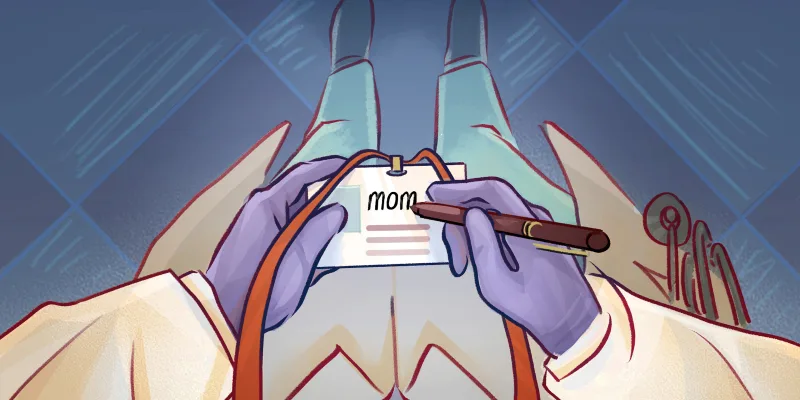For someone with a lipase value over 5,000, my patient didn’t appear too concerned. She was pleasant, laying comfortably on the gurney reading a book. Earlier in the day, she had suffered terrible, throbbing pain around her belly, and, after getting her blood drawn in her primary physician’s office, had been referred to our ED for further management of her pancreatitis. She did not drink alcohol, did not have a history of gallstones, high cholesterol, recent trauma, or surgery.
“What else could cause her pancreatitis?” my attending asked.
Part of me hesitated; anything other than the three most common etiologies would be beyond the scope of the ER and would have to be pursued upstairs. But it was a slow night, and my attending was waxing Socratic, challenging me to think beyond the immediacy of the ED and expand my thought processes to consider the less common causes. Racking my brain, I recalled a mnemonic from medical school that detailed the common causes of pancreatitis: I GET SMASHED: Idiopathic, Gallstones, EtOH, Trauma, Steroids, Mumps/Malignancy, Autoimmune, Scorpion sting, Hypertriglyceridemia/Hypercalcemia, ERCP, Drugs. … By the time I reached the second S, I began questioning both the likelihood of a scorpion sting in New England in the autumn, and the impact of mnemonics on my critical thinking.
Medicine is rife with mnemonics — over 1,500 by some estimates, arguably the most in any professional field. Most are acronyms and initialisms engrained in our daily routines: we assess the first moments of life with APGAR scores, format our charting practices via SOAP notes, handoff patient sign-outs via SBAR, foster rapport at the bedside with FORD, and deliver bad news with SPIKES.
For something so pervasive, I don’t think mnemonics receive the recognition they deserve in our pedagogy. We are taught eponyms of anatomical landmarks like the ligament of Treitz, and physical exam techniques like Murphy’s sign, named after the horn-rimmed physicians who discovered them. But who can recall the individual who coined the acclaimed initialism MUDPILES? Mnemonics are the first memes in medicine, viral long before COVID-19 was. Moreover, they represent so much of what is intrinsic to our field: facilitating information retrieval and retention by distilling complex concepts into digestible facts. Indeed, ease of recall makes mnemonics appealing for the disbursement of information in public health initiatives, (e.g., FAST for recognition of stroke symptoms), institutional protocols (e.g., ABC and CAB to guide the steps in CPR), or as clinical decision tools (e.g., NSAID for cervical spine assessment, HAD CLOTS for PERC). My specialty, EM, is built on the foundation of one initialism — ABC, Airway, Breathing, Circulation.
Throughout my time in medical school, I learned chiefly through mnemonics; once, I could recall and recite over a hundred. Some were more exotic (e.g., Randy Travis Drinks Cold Beer), others were ludicrous (e.g., ABCDEJFHIJKLMNOPQ). I collected them slowly, like scrabble tiles, piecing them together into the right combinations to make sense of everything I was learning. And, like the shifting tiles on a Scrabble board, I thought I could contort anagrams to my liking to make meaning out of uncertainties. Often, it worked. It was a way of contextualizing a science wherein everything was important and all things mattered: every nerve bundle, every anatomical branch.
Then I saw how messy the real world is. Stepping out of education and into practice, I learned that not every rheumatic fever presents with all (or any) JONES criteria. I learned that ease of retrieval is a far cry from actual experience and application. I learned that problems don’t easily arrange into tidy tiles.
As an intern, it's easy for me to think of mnemonics as guidelines, as facts. But they have their limitations. While they promote quick recall, they can't replace slow, deliberate thinking, the deep judgments that come with time, experience, and wisdom. Just because I can rattle off recitations doesn’t mean I have a deeper ability to engage with the content. Mnemonics provide quick information, but they don’t provide nuance — what not to consider, what not to ignore. There will be a point in my medical career when I can no longer recall the 21 most common causes of altered mental status (AEIOU TIPS), but hopefully, I'll have the experience to rely on my own line of thinking.
As humans, we want to make sense of our uncertainties. When we are handed a bunch of letters in disarray, we try to pick up the scattered pieces and rearrange them to make words. Many of us chose medicine as our profession to make complex things simple. But the human body is not just complex — it is vastly so. And there is nothing certain in this messy science. There’s a reason why I in I GET SMASHED stands for “Idiopathic,” — i.e., “I don’t know.”
Mnemonics can help retrieve the information I need, but they aren’t the only tool at my disposal. Hopefully, there will be a time when I no longer rely on mnemonics to govern my thinking. Someday, I hope to look beyond the letter tiles, past the shifting words, to formulate the sentences in my patient’s story. Until then, mnemonics remain, like signposts along a guided path to help me think quickly on my feet — or, at least, to remind me of scorpion stings.
Are there tools or "shortcuts" you've found helpful in your medical practice? Share in the comments.
Andrew Park is an emergency medicine resident at Beth Israel Deaconess Medical Center. A newcomer to Boston’s coffee scene, he spends his free days in cramped corners journaling about his experiences in and out of the hospital. He hopes his writing will inspire resilience within himself, his colleagues, and his patients. Andrew is a 2020–2021 Doximity Op-Med Fellow.
Illustration Collage by April Brust / gonin / shutterstock






